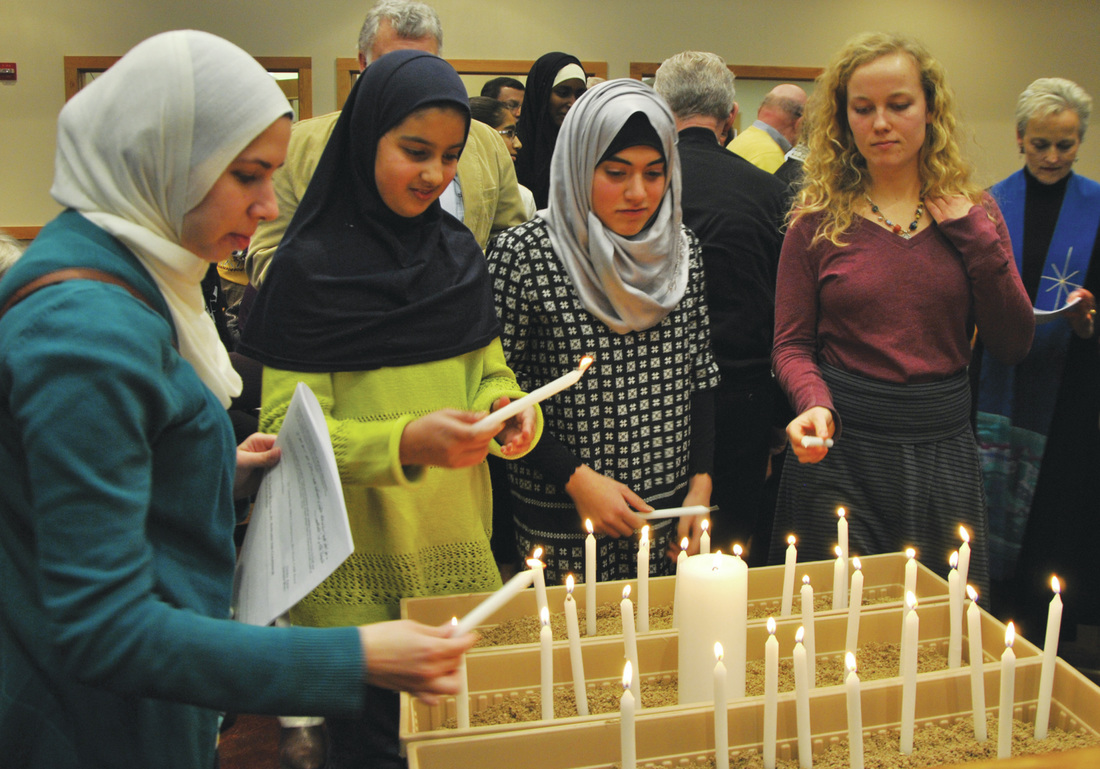Allies and Friends MN
Photo credit Bob van Hesse
Thoughts on shared prayer
Christians and Muslims together number roughly one half of the world’s population today. We stand shoulder-to-shoulder as equals before God, whether we call out in English, Hebrew, Arabic, Spanish, Swahili or Mi’kMaq. We share a common faith in a God who loves and saves us, but we rarely experience that faith together. When we engage in prayer together, we consciously step together into the circle of God's love.
Not surprisingly, members and congregations of each faith vary widely in their willingness to pray with those of other faiths. Tradition, culture and politics can all impact the freedom we have to pray together. At the most basic level, we can pray at the same time but separately, each in their own places of worship. When this is the only option available, it can still be a powerful symbol of our shared faith.
Some Muslims and Christians are willing and able to create times and spaces for interfaith prayer. We have gathered some thoughts on creating interfaith prayer moments in the hope of avoiding unintentional distress and opening the door to all the ways in which we can share our common relationship with God.
Not surprisingly, members and congregations of each faith vary widely in their willingness to pray with those of other faiths. Tradition, culture and politics can all impact the freedom we have to pray together. At the most basic level, we can pray at the same time but separately, each in their own places of worship. When this is the only option available, it can still be a powerful symbol of our shared faith.
Some Muslims and Christians are willing and able to create times and spaces for interfaith prayer. We have gathered some thoughts on creating interfaith prayer moments in the hope of avoiding unintentional distress and opening the door to all the ways in which we can share our common relationship with God.
Types of Prayer
|
|
Interfaith prayer service at St. Edward the Confessor Episcopal Church, Wayzata, MN Photo credit Paige Keiffer, Wayzata Sun Sailor
|
Music
|
|
A Place for Prayer
|
|
Format for Prayer
|
One successful model has leaders of each faith leading various portions of the service. In this way leadership is shared, everyone is able to enter fully into at least one part of the service, and all have the opportunity to learn from those of other faiths. We have attached a sample of such a service. It is important in planning that all participating faiths be well represented both in planning and presiding over the service.
|
Sensitivity to Language
|
Islam states that God has no partners, is not begotten and has not begotten another. Muslims do not refer to God as Father (or Mother), nor do they generally refer to themselves as children of God. They do refer to people of faith as brothers and sisters. See also our Language and Etiquette page.
|
